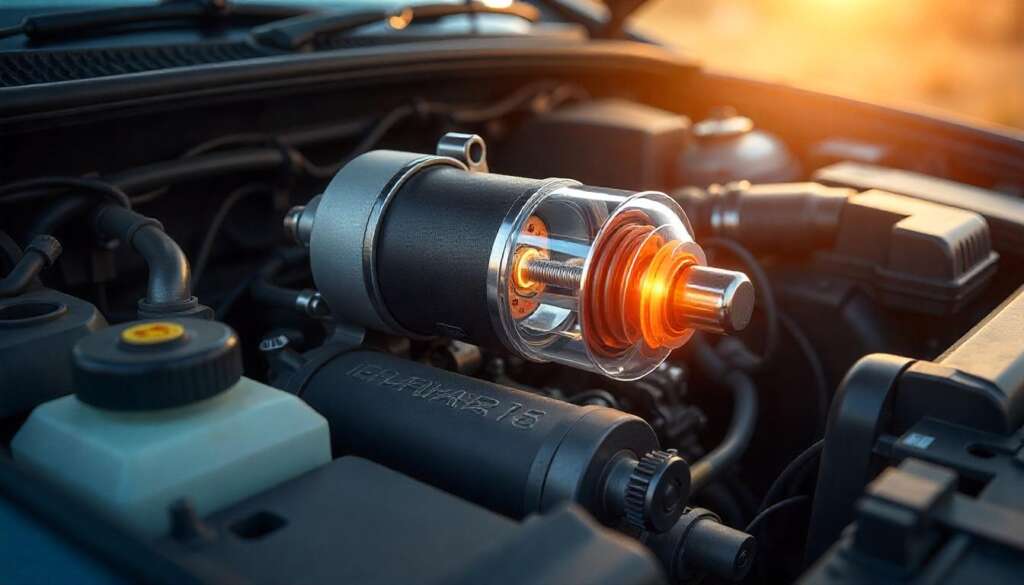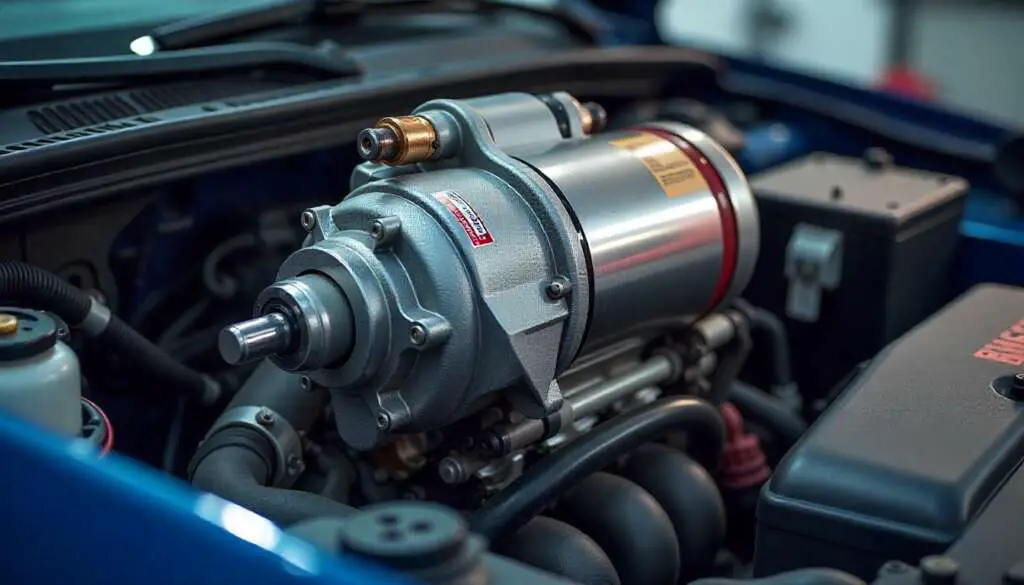Share This Article

Imagine this: It’s a cold Monday morning. You’re going for walks past due for work, and as you turn the important thing for your vehicle’s ignition, nothing takes place—only a faint clicking noise. Frustration mounts as you surprise, “What will be incorrect with my vehicle?” Chances are, the wrongdoer is your starter motor.
In this newsletter, we’ll explore what a starter motor is, how it works, and why it’s vital. We’ll also cover the way to diagnose symptoms of a defective starter motor, maintenance pointers, and what to do whilst it fails. Whether you’re an automobile enthusiast or a person who just wants their vehicle to start reliably, this guide has the entirety you need.
What Is a Starter Motor and How Does It Work?
The starter motor is a small but powerful electric motor that plays a crucial function in starting your automobile. Think of it because the muscle in the back of the magic of having your engine jogging. It works via attraction with the engine’s flywheel to provoke the combustion system. Once the engine fires up, the starter motor disengages and shuts off.
Here’s a step-by-step breakdown of ways a starter motor works:
- Ignition Activation: Turning the important thing or urgent the begin button sends an electric powered signal from the automobile battery to the starter motor.
- Pinion Gear Engagement: The motor activates a small tool, referred to as the pinion, which meshes with the flywheel at the engine.
- Engine Cranking: The motor spins the flywheel, which turns the crankshaft and sets the pistons in motion.
- Engine Running: Once the engine takes over, the starter motor disengages, permitting the vehicle to run on its own.
Without the starter motor, your vehicle’s engine wouldn’t have the initial push it desires to ignite.
Why Is the Starter Motor So Important?
You might not think about it often, but without a functioning starter motor, your automobile genuinely won’t start. Here’s why it’s essential:
- Engine Start-Up: The starter motor is the first step in the engine’s operation. Without it, nothing else can take place.
- Reliability: A reliable starter motor ensures you may expect your vehicle, whether it’s an everyday travel or an extended avenue journey.
- Convenience: Imagine being stranded in a car parking zone because your vehicle gained’t start—this highlights how critical the starter motor is in your day-to-day lifestyle.
What Are the Symptoms of a Failing Starter Motor?
Recognizing the caution symptoms of an awful starter motor can prevent you from being stuck suddenly. Here are the most common signs and symptoms:
- Clicking Noise: If you hear a clicking sound while turning the ignition, it can suggest the starter motor isn’t receiving enough strength.
- Grinding Noise: A grinding sound would possibly suggest that the pinion gear isn’t always attractive nicely with the flywheel.
- Intermittent Starting: If your car starts a few days and refuses to begin on others, the starter motor will be a hassle.
- No Crank, No Start: If the engine doesn’t flip over in any respect but the battery is first-class, it’s likely a starter motor problem.
- Burning Smell: Overheating due to extended cranking can cause a burning scent, signaling damage to the starter motor.
How to Diagnose Symptoms of a Faulty Starter Motor
If your automobile shows signs of a terrible starter motor, right here’s a step-by means of-step guide to diagnosing the difficulty:
Step 1: Check the Battery
A susceptible battery can mimic a defective starter motor. Use a multimeter to make certain the battery voltage is a minimum of 12.6 volts.
Step 2: Inspect the Wiring
Examine the cables connecting the battery and starter motor. Look for unfastened, frayed, or corroded wires.
Step 3: Listen for Noises
Pay attention to any clicking or grinding sounds whilst trying to start the auto. These are key signs of starter motor issues.
Step 4: Test the Voltage
Use a multimeter to check if the starter motor is receiving sufficient electricity. If it’s getting energy however not cranking the engine, it’s likely defective.
Step 5: Try Jump-Starting
If the car starts with a leap, the problem may also lie with the battery as opposed to the starter motor.
How Much Does a Starter Motor Replacement Cost within the UK?

Replacing a starter motor can range broadly in price depending on your automobile’s make and model. On common:
- Parts: £a hundred–£three hundred
- Labor: £50–£150
For luxurious automobiles or automobiles in which the starter motor is difficult to get entry to, anticipate higher prices. Always get an in-depth estimate out of your mechanic to keep away from surprises.
How to Fix a Broken Starter Motor: A Step-by-Step Guide
If you’re assured in your mechanical talents, you could update a defective starter motor yourself. Here’s how:
- Disconnect the Battery: To avoid electrical shocks, continually disconnect the bad terminal of the battery.
- Locate the Starter Motor: It’s typically determined close to the lowest of the engine, attached to the transmission bell housing.
- Remove Wiring Connections: Detach all electric connections to the starter motor. Label them to keep away from confusion during reassembly.
- Unbolt the Starter Motor: Use a wrench to do away with the bolts securing the starter motor.
- Install the New Starter Motor: Fit the brand new motor, reconnect the wiring, and bolt it in location.
- Reconnect the Battery: Reattach the battery terminal and check the starter motor.
If you’re unsure, it’s pleasant to seek advice from an expert mechanic.
How to Maintain Your Starter Motor for Long-Lasting Performance
Regular renovation can enlarge the existence of your starter motor. Here are some recommendations:
- Inspect Regularly: Check for signs and symptoms of wear, corrosion, or unfastened connections.
- Keep the Battery Charged: A weak battery places extra strain on the starter motor.
- Avoid Overcranking: If your vehicle doesn’t begin right now, avoid preserving the important thing or button for too long.
- Protect Against Moisture: Keep the starter motor location smooth and dry to save you from corrosion.
What Causes Starter Motor Failure and How Can You Prevent It?
The maximum not unusual motives for starter motor failure include:
- Wear and Tear: Over time, components like pinion tools or solenoids can be put on out.
- Electrical Issues: Faulty wiring or a horrific relay can cause the motor to fail.
- Overheating: Prolonged cranking overheats the motor, main to damage.
- Corrosion: Moisture and dirt can corrode electric connections, lowering performance.
To save you from failure:
- Keep the battery healthy.
- Address uncommon sounds straight away.
- Inspect the motor for the duration of recurring vehicle renovation.
Conclusion: Why the Starter Motor Matters
The starter motor can be a small factor, however it has a massive task. Without it, your automobile’s engine wouldn’t start, leaving you stranded. By informing the way it works, recognizing the signs and symptoms of failure, and appearing ordinary maintenance, you could make certain your automobile begins reliably on every occasion.
Whether you’re a DIY enthusiast or prefer leaving maintenance to the professionals, understanding the basics of a starter motor can prevent time, money, and problems. So the next time you start your car, take a moment to understand this hardworking little motor that gets you on the street.
FAQs About Starter Motors
1. What is the cause of a starter motor in a car?
The starter motor is responsible for beginning your car’s engine. It creates the preliminary crank that allows the engine to start its combustion system. Without a starter motor, your engine might have no way to ignite and operate.
2. What are the symptoms of an awful starter motor?
Some common signs and symptoms of a faulty starter motor include:
- A clicking noise when turning the ignition.
- Grinding sounds for the duration of startup.
- Intermittent starting issues.
- The engine doesn’t crank in any respect.
- A burning scent caused by overheating.
If you observe these signs, it’s fine to get your vehicle inspected promptly.
3. Can I begin my car if the starter motor fails?
If the starter motor is absolutely non-functional, you can not start your automobile in a regular manner. However, there are brief answers like push-beginning (for guide transmission cars) or the use of a jump starter. These methods ought to best be utilized in emergencies, and you must replace the starter motor as quickly as feasible.
4. How long does a starter motor generally remain?
On average, a starter motor lasts between a hundred,000 and one hundred fifty,000 miles, depending on your conduct and preservation. Factors like frequent brief trips or starting the auto a couple of instances a day can shorten its lifespan.
5. How a good deal does it cost to repair or replace a starter motor?
The price of changing a starter motor varies depending on the make and version of your car. In the United Kingdom, it usually fees:
- Parts: £100–£300.
- Labor: £50–£one hundred fifty.


